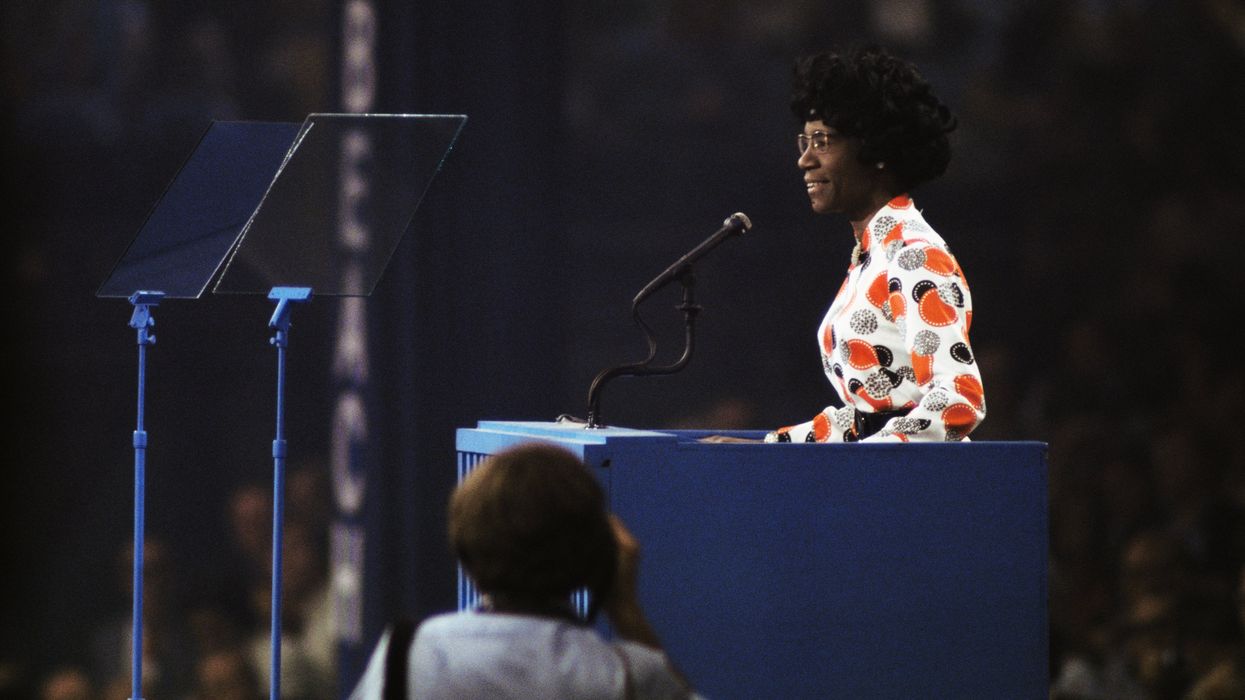Johnson is a United Methodist pastor, the author of "Holding Up Your Corner: Talking About Race in Your Community" and program director for the Bridge Alliance, which houses The Fulcrum.
As the 2024 presidential campaign season heats up, with Vice President Kamala Harris emerging as a formidable contender, it's a moment to reflect on the enduring power of the feminist mantra that has shaped generations of women in politics: "The personal is political."
This potent idea, popularized by trailblazers like Shirley Chisholm and bell hooks, continues to resonate through women's leadership actions today. It's particularly relevant in the context of the 2024 election, as we witness Harris' campaign and the unmistakable impact of her personal experiences on her political vision.
Chisholm's legacy is one of groundbreaking firsts. The first Black woman in Congress and the first woman to seek the Democratic presidential nomination, Chisholm challenged the political status quo. Her unapologetic advocacy for women's rights, people of color and people experiencing poverty embodied the idea that personal experiences and identities shape political action. Chisholm famously said, "If they don't give you a seat at the table, bring a folding chair." Her boldness and determination continue to inspire women to claim their rightful space in politics, serving as an example of hope and encouragement for generations to come.
Renowned author and scholar bell hooks spent her career exploring the intersections of race, gender and class. Her work has been instrumental in shaping our understanding of how systems of oppression operate and how individuals can resist. She argues that “personal is political” is not just a slogan but a strategy for liberation. By centering the experiences and perspectives of marginalized people, we can challenge dominant power structures and create a more just society.
The legacy of Chisholm and hooks reminds us that the personal is political — not just a catchphrase, but a call to action. It's a mandate to challenge the systems that have historically excluded women, all of which are connected and of concern to women. It's a commitment to centering all people's experiences and perspectives, especially marginalized communities, in their work and witness.
For Harris, the personal has undoubtedly been political. From her early days as a prosecutor to her time as a senator and now as vice president, Harris has drawn on her experiences as a woman of Black and Southeast Asian descent to inform her policy priorities. Her advocacy for racial justice, women's rights and immigrant communities, as seen in her support for the Voting Rights Advancement Act and her work on the Senate Judiciary Committee, derives from within. It is a deep understanding of how power impacts people's lives — the double binds and biases women, particularly those of color, encounter in leadership. Harris must navigate these, from the “angry Black woman” stereotype to the pressure to conform to traditional gender roles, while staying true to the principles of intersectional womanism that has undergirded her career.
Harris' campaign is a powerful reminder to our generation of the women who paved the way and pushed for a politic of the people, by the people and for the people. Regardless of the outcome, Kamala Harris' campaign is an inspiration to a generation of young girls, boys, men and women who wish to make their voices heard, experiences respected and freedom honored. It instills a sense of hope and optimism for the future of inclusive and representative politics.




















 From left to right: Gabriel Cardona-Fox, Bud Branch, Joe Concienne
From left to right: Gabriel Cardona-Fox, Bud Branch, Joe Concienne 